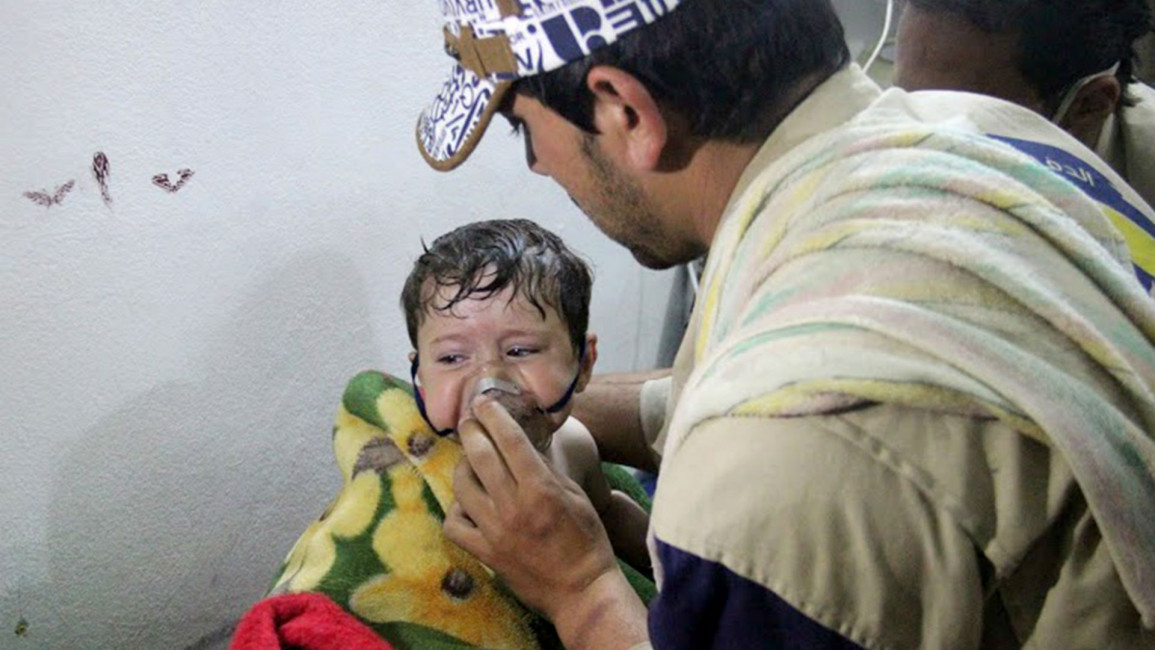Two dead, twenty injured in Syrian regime 'chlorine attack'
A woman and a child were killed and twenty civilians, including children, were treated for asphyxiation on Tuesday evening following what is believed to be a chlorine gas attack carried out by the Syrian regime near Hama.
YouTube footage and first-hand eyewitness accounts report that six barrel bombs, allegedly filled with chlorine, were dropped from a Russian-made helicopter on the village of al-Latamineh, northwest Hama.
"A regime helicopter dropped six barrels containing poisonous chlorine gas on the city of al-Latamineh," Abu Shadi al-Hamwi, a local media activist, told The New Arab.
"One woman and one of her children were killed in a rocket attack by regime forces on al-Latamineh, while dozens of others were wounded."
"The [chlorine] attack injured five civilians from one family, including children, who suffered from shortness of breath, vomiting and nausea."
YouTube footage showing three barrel bombs being dropped from a Russian-made helicopter was also uploaded by independent media group, the Syrian Centre of Events at 18:50 (Syrian time), on Tuesday.
The news comes as Britain and France on Tuesday pushed for sanctions against the Syrian regime in response to findings that regime forces had carried out three chemical weapons attacks against civilians.
"We call for a resolution of the council to sanction the authors of those crimes," France's permanent representative to the United Nations, Francois Delattre said.
"When the use of weapons of mass destruction are at stake, weakness and impunity are simply not an option."
The UN was also criticised on Tuesday by a group of doctors in Aleppo for its inability to organise the evacuation of the critically ill during the recent three-day ceasefire.
"Of course we blame the United Nations for not providing a clear plan," Hamza al-Khateeb, a spokesperson for the group of doctors in east Aleppo, told AFP.
"We need guarantees that there will be no arrests or attacks on the sick, wounded, and their companions."
"There was no clarity on the meeting points, on which cars would transport them, or on whether they would be searched."
The UN gave a number of reasons why it had not organised the evacuation, including a breakdown in communications with local leaders in east Aleppo.


![President Pezeshkian has denounced Israel's attacks on Lebanon [Getty]](/sites/default/files/styles/image_684x385/public/2173482924.jpeg?h=a5f2f23a&itok=q3evVtko)



 Follow the Middle East's top stories in English at The New Arab on Google News
Follow the Middle East's top stories in English at The New Arab on Google News


